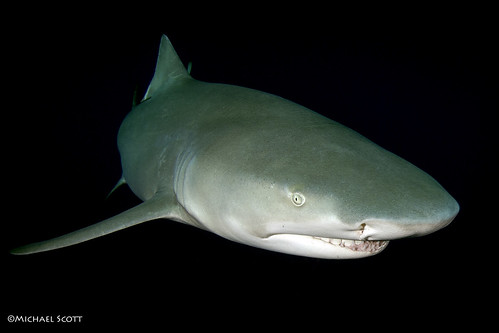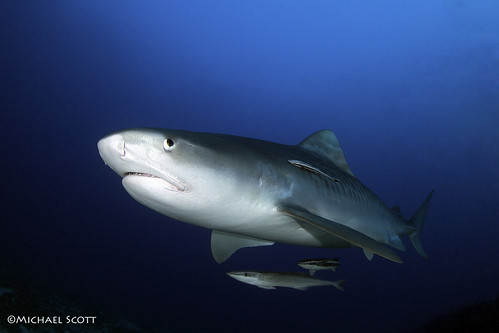I think the big issue that needs to be raised is the concept of baiting versus feeding. In a court of law, this would have to be demonstrated, because there is no good way to convey how differently these two approaches actually are, by just saying or explaining it....while having the jury and judge in the water would be the best way to get the FEEL for the difference, we could probably showcase some of this issue with videos...
So the baiting just gets the sharks to slowly come cruising in, and they are thinking they may be able to find something injured, but they are expecting not to--that something else has probably already chomped up this new meal---this behavior os from millions of years of evolution and the is the behavioral effect from the scent of blood...
The big BUT is when a fish is shot with a spear, or hooked on a line, and is STRUGGLING and putting out the vibrations that telegraph this emergency to all the sharks within miles....The sharks experience this notification VERY DIFFERENTLY from the baiting/scent in the water...for this struggling, they are thinking that this injured fish is still alive and wounded, and if they hurry, they may get an easy meal---and millions of years of evolution has programmed them to believe that if they come in fast for this, they may get the meal....So..the sharks respond to Randy's spearing with a classic Feeding Frenzy mentality, and each shark is so intent on being the one of 2 dozen sharks that gets to the injured fish first, and actually gets a big bite of it.....This has DRAMATIC repercussions for Divers. While the baiting does nothing to the behavior, because there is no reward, no teaching the shark they can get an easy meal--the spearing or feeding of the shark is very dangerous for divers--even if not for a group of cowboy divers doing the feeding....The sharks learn.....They are much smarter than was thought to be the case in the past, and they have always been opportunistic feeders. They know to hang around places they are likely to find food, and they recognize an opportunity if divers start to feed them regularly, then divers become "feeding structures" to them, almost like a shipwreck in how wrecks attract schools of fish. But unlike a shipwreck, the diver is not in a good position to receive a test bite, or a nudge, as the shark is actively LOOKING for food.
And we are already seeing that sharks in areas where Randy has been doing his feeds, or where Calypso's divers have been shooting tons of jacks leaving injured fish by the dozens.....the sharks have associated the divers with an easy meal, and they see the meal initiating with the div era--and go right to the diver.....like the bullshark going right to Randy, for a hand fed meal....It is one thing when it is a 10 foot bullshark running up to Randy for a handout....it is QUITE ANOTHER, WHEN THE 10 FOOT BULLSHARK COMES ZOOMING UP TO A NEW DIVER, OR TO YOUR WIFE OR LOVED ONE ( a diver that is not prepared for this, or skilled for such an aggressive encounter) --and bumps them to indicate they want to be fed--or nips them to see if they might be food..or have food....A shark nip is to them, just a testing --like you picking up an object you are curious about, and examining it--sharks get curious, and particularly when in the feeding frenzy mode the spearing creates, they will be curious and test bites will be tried constantly....the shark knows the meal is almost in front of him, and he has to find it....the unfortunate thing about a human being "nipped" with a test bite, is that we are so fragile, hat even this "nip" can be life threatening.
I would be fine with Randy or Calypso baiting on reefs or wrecks where there are only advanced divers......There is no excuse for bringing them in to the baby dive locations like Breakers as I have heard was done by Calypso ( even if this is not their regular "feeding site"--it seems they have done several shoot everything sessions to bring in sharks on Breakers) ...In fact, there is NO EXCUSE for any spearfishing on the Breakers Reef...this has been considered taboo by all the responsible dive operations since the 1980's.










